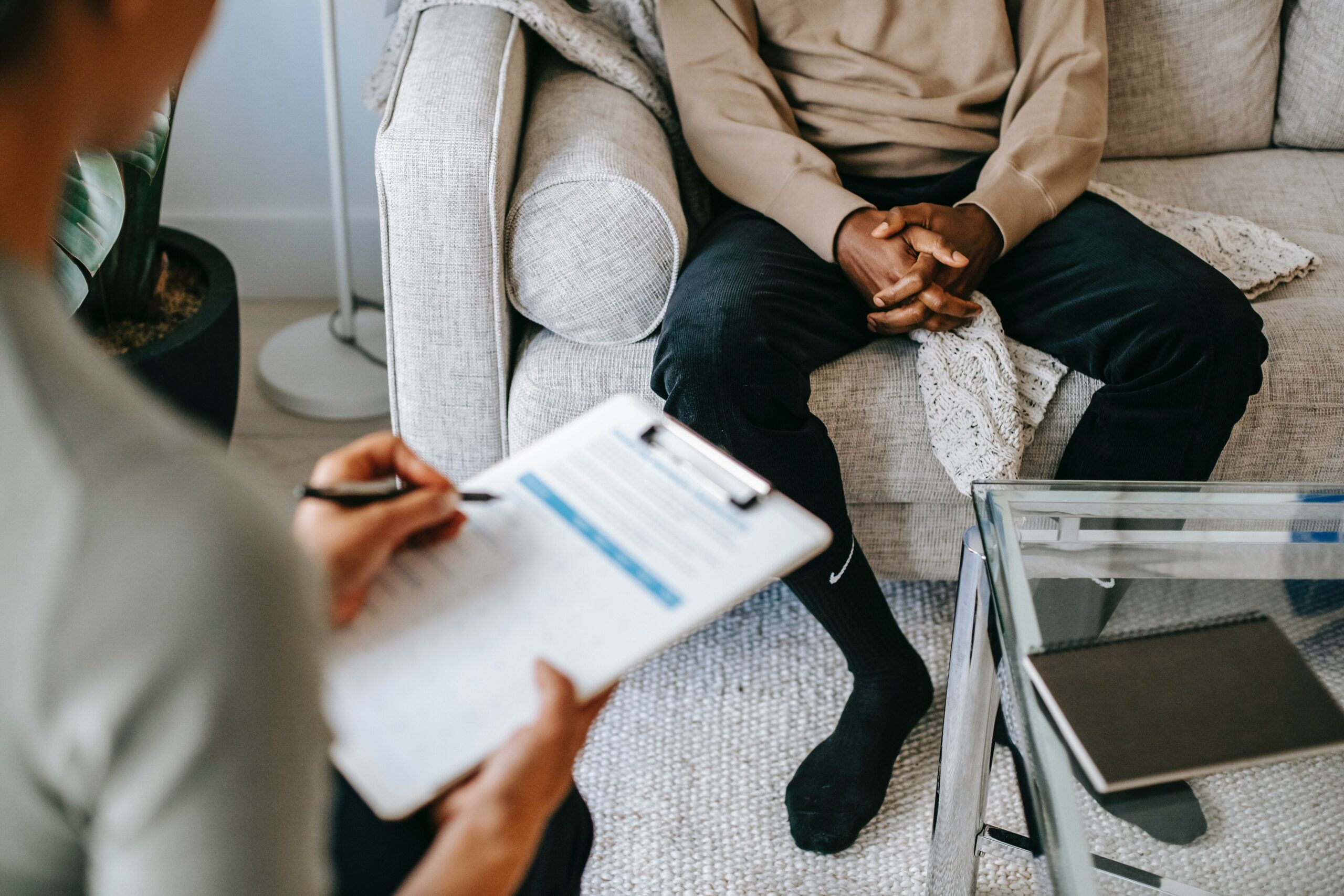
WHAT IS PRESCRIPTION DRUG DETOX?
Prescription drug detox is a period during which someone who is dependent on prescription medications discontinues use and purges toxins from their system. Detoxing from prescription drugs is typically the first vital step in the drug addiction treatment process. It is intended to manage the acute physical and psychological symptoms associated with drug withdrawal. This is key because some withdrawal symptoms can be life-threatening if unmanaged.

The Prescription Drug Detox Process
If someone becomes physically dependent on prescription drugs, the body adapts to the presence of the medication and requires it to function normally. This reliance can occur even when using the medication precisely as prescribed by a healthcare provider.
By engaging in a supervised medical detox, you can start the process of breaking free from the physical and psychological grip of prescription drugs. Supervised detoxification is the best way to detox from prescription drugs. A team of skilled medical professionals will closely monitor progress, adjust treatment as necessary, and provide the necessary support to mitigate withdrawal symptoms and ensure your well-being throughout the prescription medication detox process. This critical step sets the stage for successful recovery, empowering you to regain control of your life and embark on a path to lasting health and wellness.
Here’s what to expect at a prescription drug detox center:
- Assessment: The medical team will conduct a thorough assessment to develop a personalized detox plan.
- Stabilization: During this phase of prescription drug detox, medications may be used to manage withdrawal symptoms and stabilize your condition.
- Detoxification: The prescription drug will be gradually reduced and eliminated from your system under medical supervision, ensuring your safety and minimizing discomfort.
- Transition to ongoing treatment: As you complete the detox process, you will transition into the next phase of treatment, which may involve therapy, counseling, and other evidence-based treatments like MAT (medication-assisted treatment).

Signs of Prescription Drug Withdrawal
Prescription drug withdrawal symptoms can vary depending on the specific medication, dosage, duration of use, and unique individual factors. While consulting a medical professional is vital for an accurate assessment, familiarizing yourself with common withdrawal symptoms can help provide a more general understanding.
Symptoms to look for when identifying signs of prescription drug withdrawal include both physical and psychological symptoms as outlined below:
PHYSICAL SYMPTOMS
Physical prescription drug withdrawal symptoms include:
- SHIVERING
- HEAVY SWEATING
- SKIN IRRITATIONS
- WEIGHT LOSS
- SENSITIVITY
PSYCHOLOGICAL SYMPTOMS
Psychological prescription drug withdrawal symptoms include:
- MOOD SWINGS
- DEPRESSION
- ANXIETY
- SLEEP IRREGULARITIES
- POOR CONCENTRATION & CONFUSION
faqs
How do you detox from prescription drugs?
Detoxing from prescription drugs typically involves a supervised medical detox program where you gradually reduce and eliminate the substance under medical supervision. The process may include medications to manage withdrawal symptoms and ensure your safety.
How long does it take to detox from prescription drugs?
The duration of prescription drug detox varies depending on factors such as the specific drug, dosage, duration of use, and individual factors. Generally, detox can last anywhere from a few days to a couple of weeks.
What are the signs of prescription drug withdrawal?
Signs of prescription drug withdrawal can vary depending on the drug, but common symptoms may include anxiety, restlessness, insomnia, nausea, vomiting, sweating, muscle aches, and cravings for the drug.
How do I know if I’m addicted to prescription drugs?
Signs of prescription drug addiction may include an inability to control or stop drug use, continued use despite negative consequences, cravings, tolerance (needing higher doses for the same effect), withdrawal symptoms when attempting to quit, and neglecting personal responsibilities due to drug use.
What is prescription drug detox like?
Prescription drug detox typically involves a structured and supportive environment with medical supervision. It focuses on safely and comfortably eliminating the drug from your system while managing withdrawal symptoms. Medications may be used to ease discomfort and facilitate the detox process.
How Long Does Prescription Drug Detox Take?
How long does it take to detox from prescription drugs, then? In general, the process typically lasts from a few days to a few weeks. The duration of the detox process may vary depending on factors that include:
- Type of medication
- Dosage
- Duration of use
- Individual factors
- Prescription drug detox program
Short-acting medications with a shorter half-life – opioids like Vicodin or oxycodone, for instance – usually involve a shorter detox duration of 5 to 7 days. Long-acting medications with a longer half-life, such as benzodiazepines like Valium or Xanax, may require a more extended detox period of 2 to 4 weeks or more.
Remember: detoxification is just the initial step in the overall treatment process for prescription drug addiction. Following detox, it is advisable to continue with comprehensive addiction treatment, including therapy, counseling, and ongoing support to address the underlying factors contributing to addiction and promote lasting recovery.
Don’t Let Prescription Drug Addiction Hold You Back
Detox from Prescription drugs with Gratitude Lodge
Prescription Drug Detox Timeline
The prescription drug detox timeline can vary depending several factors like type of medication being used, the dosage consumed, how long the drug has been used, existing health factors, and more. However, a typical prescription drug detox timeline
Initial phase (first 24 to 72 hours)
During this phase, the body begins to adjust as the drug is gradually eliminated. Withdrawal symptoms may start to emerge, and they can range from mild to moderate depending on the drug and personal factors. Common symptoms may include anxiety, irritability, insomnia, sweating, and muscle aches.

Acute withdrawal phase (1 week to 2 weeks)

This phase is characterized by the presentation of more intense withdrawal symptoms as the body continues to adjust to the absence of the drug. Symptoms can include nausea, vomiting, increased heart rate, elevated blood pressure, tremors, and psychological symptoms such as depression and anxiety.
Short-acting opioid withdrawal symptoms peak on day three of detox. The most reported symptoms during this phase of detox are nausea, vomiting, and diarrhea. Medications can help mitigate these issues.
Post-acute withdrawal phase (months to years)
Some individuals may experience PAWS (post-acute withdrawal syndrome) after the acute withdrawal phase of prescription drug detox. The symptoms of PAWS can include mood swings, cravings, difficulty concentrating, sleep disturbances, and low energy. The duration and severity of PAWS may vary, but symptoms generally improve over time.
A medically supervised detox program can help individuals safely navigate the detox process, manage withdrawal symptoms, and provide support during this critical phase of recovery.
Prescription Drug Dependence vs. Addiction
Prescription drug dependence and addiction are related yet distinct concepts that involve different aspects of substance use.
Prescription drug dependence refers to a physiological state where the body has adapted to the presence of a specific medication. This adaptation results in tolerance, meaning that higher doses of the drug are needed to achieve the desired effect. Dependence can also lead to withdrawal symptoms manifesting when the medication is discontinued or significantly reduced. Dependence can occur even when the drug is taken as prescribed under the supervision of a healthcare professional. It is a physical response that can develop over time.
Prescription drug addiction, clinically described as substance use disorder, involves a compulsive and uncontrollable pattern of drug use despite adverse outcomes. Addiction is characterized by a loss of control over drug use, continued use despite harm, and an intense craving for the drug. Addiction goes beyond physical dependence and involves psychological and behavioral components. Individuals with addiction may engage in drug-seeking behaviors, neglect their responsibilities, and experience negative effects on their relationships, health, and overall well-being.
While dependence and addiction can coexist, not everyone who develops a dependence on prescription drugs will develop an addiction. Dependence is primarily a physical state, whereas addiction encompasses both physical and psychological elements, including behavioral patterns and psychological cravings.
Opioid Detox Success Rates
Research shows that up to 90% of those who detox from opioids return to using opioids within months. This does not mean that detoxification is ineffective. Rather, it is vital to focus on long-term treatment involving MAT and psychotherapy before approaching the issue of opioid detox. Indeed, there is minimal clinical utility in opioid detox without a plan for ongoing maintenance treatment.
That said, the right opioid opioid addiction and dependence drug detoxification program can achieve many goals integral to recovery from opioid addiction:
- Counter the issue of physical dependence on opioids
- Reduce the intensity of opioid withdrawal
- Address underlying medical conditions
- Prevent relapse by streamlining withdrawal and providing a connection to ongoing treatment
- Offering education about the risk of relapse and overdose in early recovering
- Facilitating MAT for opioid use disorder in continued treatment
Our Partners
WE ACCEPT MOST PPO INSURANCE
Drug and alcohol detox should be accessible to everyone. At Gratitude Lodge,
we work with most insurance plans to cover the costs of treatment.

Safely Detox from Prescription Drugs at Gratitude Lodge
At Gratitude Lodge in Southern California, we understand the challenges of prescription drug addiction and are here to help you on your journey to recovery. With our pet-friendly treatment facilities located in Newport Beach and Long Beach, CA, we provide comprehensive treatment programs dedicated to addressing substance use disorders and mental health conditions.
Our priority is your safety and well-being, which is why we provide a supervised drug detox program. This program offers a secure and supportive environment where you can safely rid your body of addictive substances. Once detox is complete, you can seamlessly transition into one of our specialized treatment programs for prescription drug addiction.
We offer three distinct treatment options to cater to your individual needs:
- 30-day inpatient program
- IOP (intensive outpatient program)
- Dual diagnosis treatment progra
Trust Gratitude Lodge to guide you from active addiction to a life of recovery. Take the first step today by calling our admissions team at 800-994-2184. We are here to support you throughout your journey and help you reclaim your life from prescription drug addiction.



















